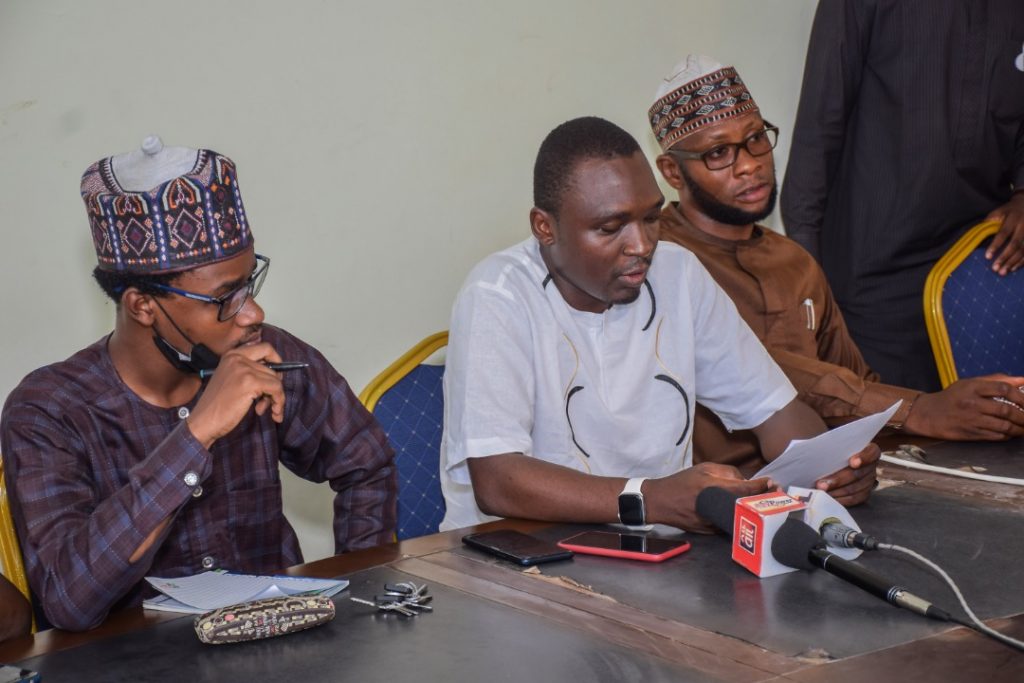The Network of Advocates for Digital Reporting (NADIR) has said that the ‘Code of Practice for Interactive Computer Service Platforms/Internet Internet Intermediaries’, by the National Information Technology Development Agency (NITDA), will tackle fake news and hate speech.
Lauding the agency at a press conference in Kano in Monday, the Network said that the Code will not only strengthen press freedom and maintain the dignity of information but also curtail fake news and hate speech in the forthcoming general elections in 2023.
The Network’s coordinator, Dahiru Mohammed Lawal noted that online space needed to be made comfortable for everyone to address issues that cause panic in society and infringe on laws.
“This wouldn’t have come at a better time than in the wake of the 2023 general elections when information disorder and illegal contents will have a field day, when businesses are fully transforming into the digital space without paying necessary dues, where indiscretion is premium in virtually all online interactive habits, and online connectivity.
“An unregulated online space remains a recipe for civil unrest and the need for an instrumental that will ensure that our unity in diversity is not exploited for pecuniary gains, while guaranteeing freedom of speech and expression as enshrined in the Nigerian Constitution is incumbent upon all citizens with the interest and love of our nation at heart.
“Certainly, incitements, ethnocentric behaviours that increase tension along with ethnic biases, interreligious incitements, and blasphemy and even secessionist tendencies that threaten security and lead to violence and wanton attacks thrive fatally in an unregulated media space,” he said.
According to Lawal, while the Nigerian Broadcasting Commission (NBC) regulates broadcast stations and the Nigerian Press Council (NPC) ensures the maintenance of the highest ethical professional standards in print media, “Why should the online platforms, especially social media be free from regulatory scrutiny?” He asked.
The group also disclosed that other countries have taken stricter and more stringent measures to curtail excesses on online platforms.
“World over, rules and regulations exist to moderate indiscretion to avert recipes for descending into anarchic existence. Very recently, precisely on Thursday, June 16th, 2022, Meta, Google, Twitter and Microsoft agreed to take a tougher line against disinformation including deep fakes and fake accounts under an updated “European Union (EU) code of practice” or face hefty fines – key word being “code of practice.
“More than 30 signatories including advertising bodies have signed up for the updated Code of Practice on Disinformation, as disclosed by the European Commission.
“Curiously, even the United States Government – the self-righteous custodians of free speech – has announced that it was establishing an interagency task force to fight harassment and abuse online.
“The move by the White House came barely four days (on Thursday) after NITDA released its draft ‘Code of Practice’ for Interactive Computer Service Platforms/Internet Intermediaries and Conditions for Operating in Nigeria.
On the socio-economic benefits of the code of practice, Dahiru said that with the digital space already contributing about 18% to the nation’s GDP, compelling big techs to abide by local laws and pay the requisite tax would amount to increased revenue which could contribute to the growth of Nigeria’s economy.
“Regulations will promote more local content which in turn translates into massive job creation.
“It will ensure the breeding of more corporate and law-abiding citizens who are mindful of our collective sensitivities as a people united in diversity.
“We have been living with regulations in schools, homes, offices etcetera, why must the case of the digital space remain different?
“We must all bear in mind that this commendable move will not only aid the strength of press freedom but will ensure sanity and integrity of information dignity which is fast waning due to activities of influence operations.
“While NITDA has clarified that the code of ethics is a draft, subject to inputs, we wish to urge stakeholders to take advantage and intervene appropriately to have a mutually accepted code of regulations without recourse to the fear of tackling freedom of speech.
“We also urge NITDA to work assiduously in building confidence and trust around what it is doing by continuously involving all stakeholders.
“We, therefore, wish to unequivocally place on record our unreserved support for NITDA’s Code of Practice,” he concluded.
By PRNigeria



